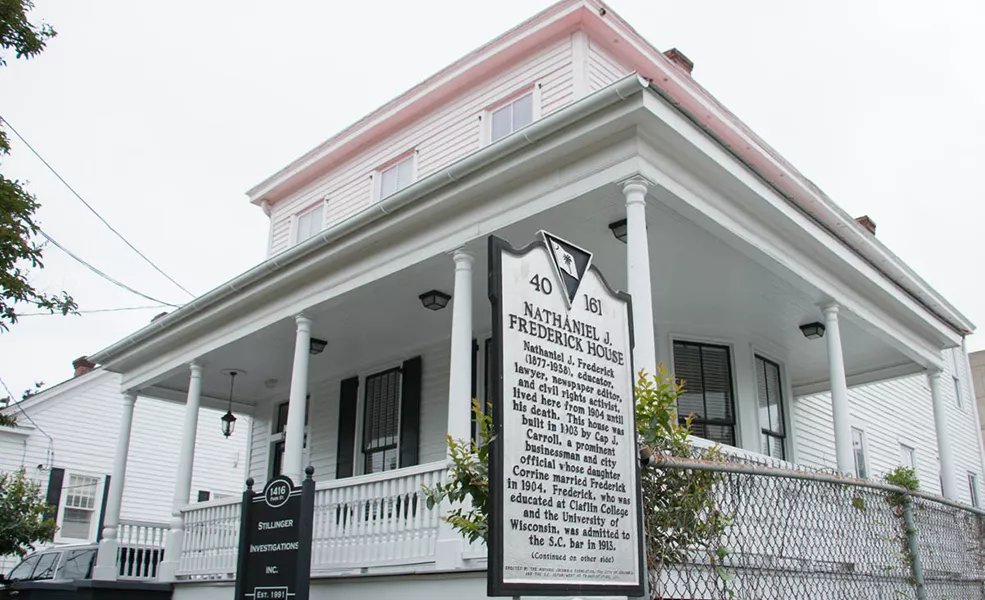1416 Park Street
Frederick served as principal of the Howard School, the state’s first public school for black children, from 1902 until 1918, and as the editor of two black newspapers, the Southern Indicator (1913, 1918) and the Palmetto Leader (1925-1938). He became Columbia’s only practicing African American attorney after being admitted to the bar in 1913.
In 1926, he barely escaped with his life after successfully appealing the case of Demon Lowman, a black man convicted of murdering the Aiken County sheriff. That night, Demon and his sister, Bertha, and cousin, Clarence Lowman, who were both expected to be acquitted the following day, were taken from jail and shot in front of a 1,000-person crowd, reportedly by county deputies. This case led to a revival of the NAACP branch in Columbia, of which Frederick was a charter member. His work on civil rights, including the first challenge to the all-white Democratic Primary, resulted in his appointment to the National Legal Committee of the NAACP, where he served alongside Charles Hamilton Houston, the architect of the legal dismantling of Jim Crow. Frederick’s death in 1938 left Columbia without a black attorney. His obituary in the New York Amsterdam News, quoted him thusly, “God has made men that could whip me, but he has never made a man that I am afraid of.”
